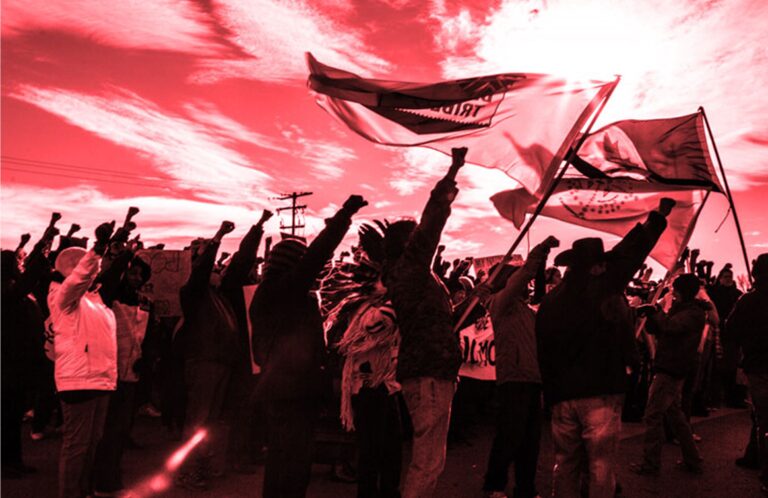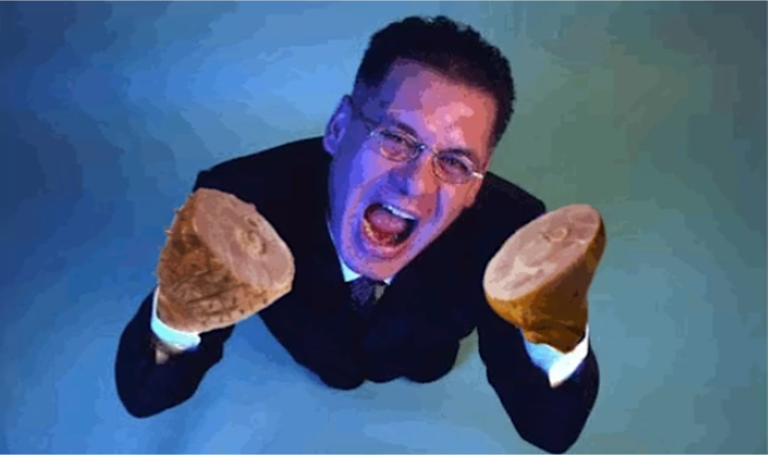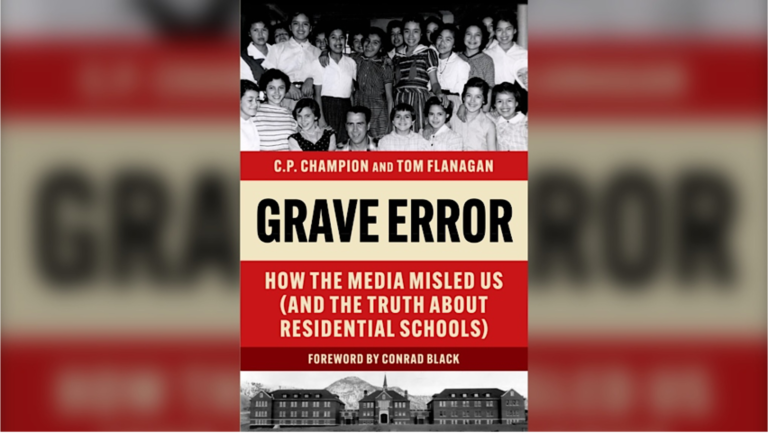Prime Minister Justin Trudeau’s latest apology, delivered in the House of Commons on November 7, was issued in recognition of the Jewish refuge-seekers on the ship MS St. Louis, who fled Nazi Germany in 1939 and were refused sanctuary in Canada. Of the more than 900 German Jews who were on the ship and ultimately returned to Europe, over 250 perished in the Holocaust. The prime minister’s office said his apology was to “the passengers, their families, and Jewish communities in Canada and around the world.”
Not to diminish the horrible fate of the victims or the culpability of those responsible for it, but since almost all of the people directly involved in the events are long dead, it seems fair to ask who is the main beneficiary of the apology. It may benefit Jews generally insofar as it refutes the lingering scourge of anti-Semitism. But it’s hard not to notice that apologies like this also provide some benefit to those who make the apologies. It is an opportunity to pat themselves on the back and display their moral superiority over their predecessors. In effect, it enables them to proclaim, “I would not have done that. I would have done better.”
Jesus Christ observed similar behaviour in people of his day who said: “If we had lived in the days of our ancestors, we would not have taken part with them in shedding the blood of the prophets” (Matthew 23:30). “If” is the key word here. In any belated apology, it is important to remember that the gap between the original actors and the later apologizers is more than just a matter of time. They are also separated by vastly different social, political, economic, and cultural circumstances.
In 1939, when the St. Louis was turned away, Canada was still dealing with the Great Depression and struggling to employ, feed, and clothe its own people. Like many other countries at the time, it was not eager to accept many immigrants. This was certainly true of the incumbent Liberal government of Mackenzie King, and presumably many if not most of the voters who put him in power. Furthermore, those who made the decision to refuse the refugees did not have the benefit of hindsight. No one knew that many of the refugees were destined for concentration camps and gas chambers. The Second World War had not yet begun, and while the Nazi threat to peace was widely recognized, no one knew the refugees would not be safe in the countries that eventually took them in (Britain, France, Belgium, and The Netherlands).
Trudeau’s assertion that the ship was “turned away” from Canada further muddies the historical context. After crossing the Atlantic it landed some of its passengers (those with valid visas) in Cuba, then attempted to sail to the United States. After the US government refused to allow the ship to dock in that country a group of Canadian academics and clergy urged the King government to offer the refugees sanctuary in Canada, but it refused. Hence the St. Louis never actually attempted to land its passengers in Canada.
It should also be recalled that in 1939 the world was awash in countless other refuge-seekers and potential immigrants, including many Jews, who were not accepted for immigration to Canada either. Why apologize only to this particular group who managed to charter a ship that could have reached Canada?
Many Canadians who hear the prime minister’s apology will be reminded of the phrase “none is too many”, which has long been used to characterize Canada’s policy on Jewish immigration before, during, and immediately after the war. Few will be aware that “none is too many” was a statement attributed to an unidentified immigration agent in a book published in 1983, rather than official government policy at any time. In fact Canada accepted 5,000 Jewish refugees between 1933 and 1945. This was admittedly not many, and allegedly proportionately fewer than many other countries accepted, but not none.
None of these arguments excuses those who refused to offer asylum to the refugees on the MS St. Louis. The anti-Semitism behind the rejection was clearly racist and wrong. And certainly a moral argument could be made that Canada could have and should have accepted more Jewish refugees. The passage of time does not change the morality of the situation.
What is far less morally clear is Trudeau’s right to make the apology in 2018, in this time and place. Who can say for certain that the current prime minister, in that time and place, would not have made the same decision as the government officials back then? It is easy to pass judgement on the sins of previous generations who are not around to defend themselves. It is much harder to recognize and admit our own sins, and that realization ought to constrain the impulse to judge our ancestors – and apologize for their actions.
Jesus chided the people of his day for their claims to moral superiority, reminding them they were “the descendants of those who murdered the prophets” (Matthew 23:31). And, in the end, they proved Jesus right. Acting in the full moral certainty of their time, they followed in the footsteps of their ancestors by persecuting and killing Jesus and many of his followers. All that changed was the identities of the victims. We may think we are morally superior to our predecessors, but we’re not. We just commit different sins and injustices against different victims. In 1939 it was 900 Jews on the MS St. Louis. Today it’s millions of refugees and potential immigrants in the world to whom Canada is not opening its doors.
In just three years in office, Prime Minister Trudeau has apologized for predecessor governments that discriminated against gays and lesbians in the mid-20th century, refused entry to Sikh migrants aboard the Komagata Maru in 1914, hanged six 19th century B.C. Indian chiefs for murder, and rejected the Jewish refugees aboard the St. Louis. Trudeau’s immediate predecessor as prime minister, Stephen Harper, made two apologies during his near-decade in office, one for the racist “head tax” imposed on Chinese immigrants in the late 19th and early 20th centuries, and another for the terrible things that happened to many children in Indian residential schools. Canadian governments only started apologizing for the nation’s historical flaws a few decades ago, but the apologies are clearly multiplying, and increasingly they are accompanied by cash and other forms of compensation.
The proliferation of apologies for past government actions has been accompanied by a proliferation of judgements against their putative authors. But there too, historical context has often been ignored or distorted, and the main beneficiaries of, say, tearing down statues of Sir John A. Macdonald, are contemporary political actors in governments or interest groups. If ever the intent of official apologies was well-meaning, they have long since devolved into a cynical political exercise that exploits long-dead victims of long-gone governments to aggrandize their successors. As Christ suggested, it’s a shabby way to stake a claim to moral superiority.






